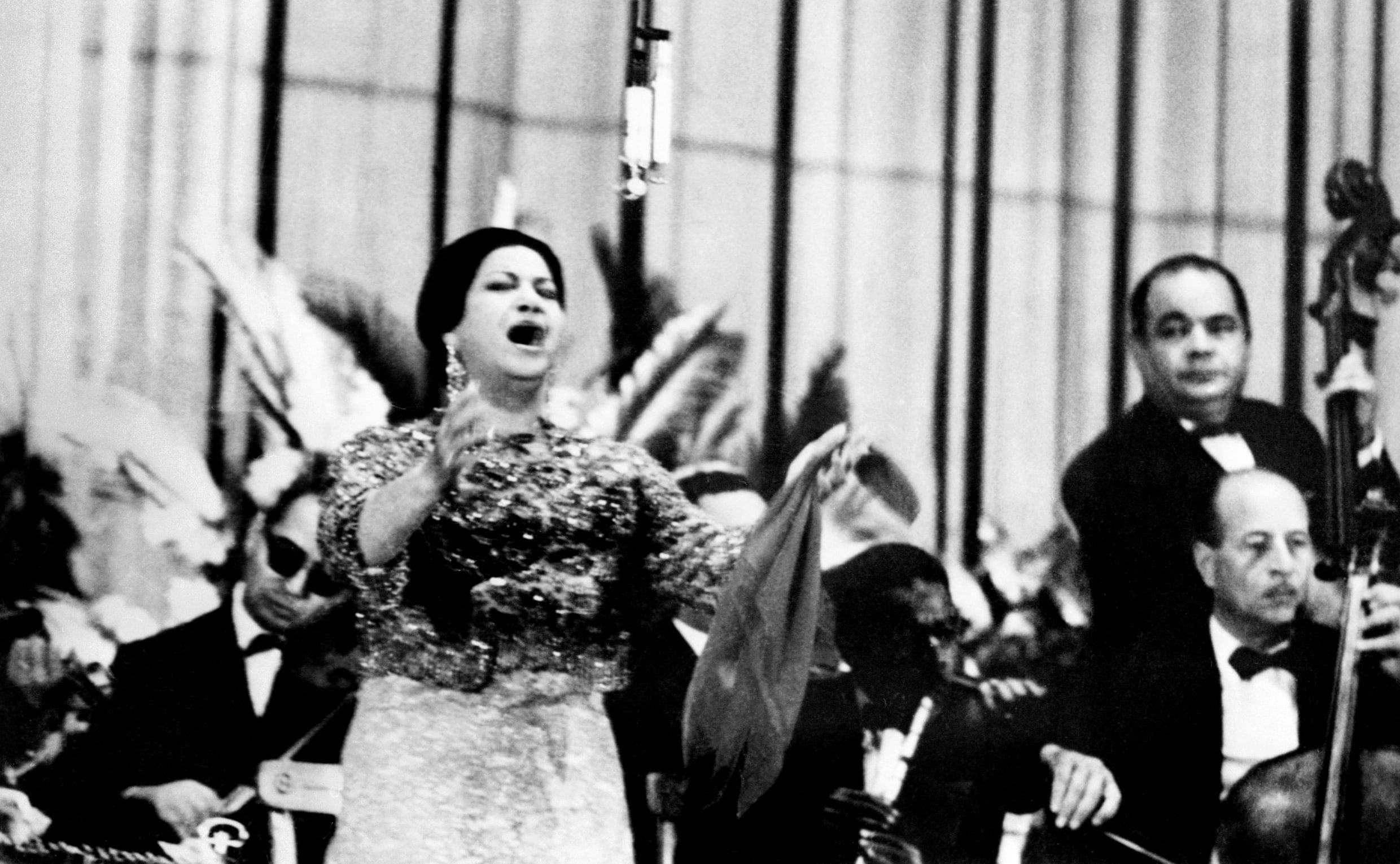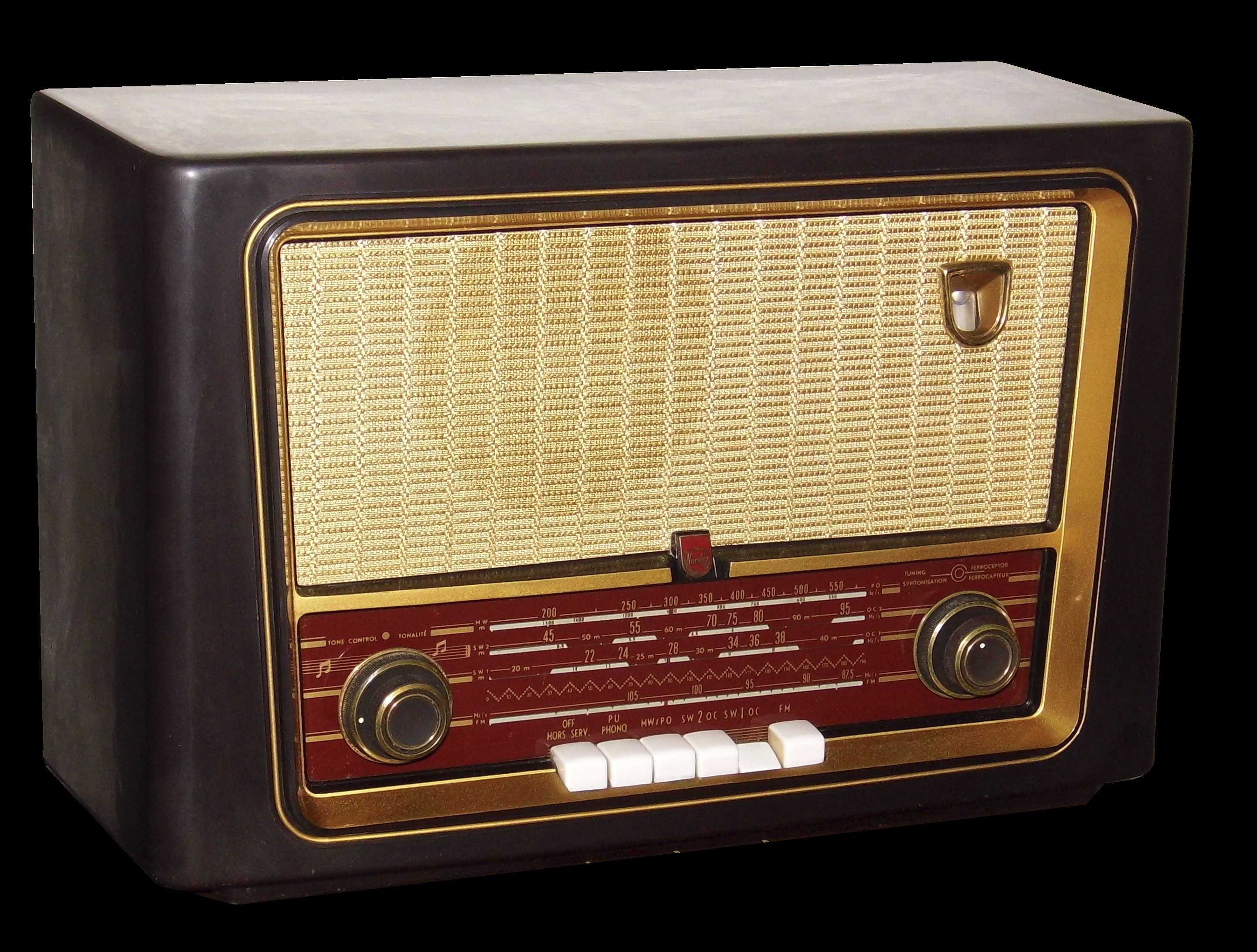
Radio Cairo: a platform for untold stories
Author: Wout van Tongeren
Arab culture was thriving in the mid-20th century. By staging Radio Cairo on 12 May, Dutch National Opera pays tribute to this golden age in the Arab world. The programme also gives a glimpse of what is to come in March 2025 with Oum, a production inspired by the music of Egyptian singer Oum Kalthoum, who was perhaps the greatest artist of her generation. We sat down with Yassine Boussaid, Director of the Meervaart Theatre in Amsterdam and co-initiator of the programme, and cultural entrepreneur Fouad Lakbir, who put together the programme, to reflect on the meaning of Radio Cairo.
Yassine Boussaid: “A while ago, Sophie de Lint, director of Dutch National Opera, and I were talking about how Meervaart and De Nationale Opera might team up to commemorate Amsterdam’s 750th anniversary as a city. We came up with two plans: Oum, a production scheduled for next year, and Radio Cairo, which will be on this month. But I should really go back further in time. For me personally, my love for Arab culture started in the 1980s and 1990s, with the films I saw as a child. My parents would rent Egyptian films from a video store and a small hole-in-the-wall place at a local market. The videos we rented brought stories, pictures and especially music to our home. The Egyptian film industry is sometimes referred to as “Hollywood on the Nile”. Films and music from Egypt set the standard; Egyptian culture was thriving in the mid-20th century. It was considered the epitome of Arab culture at the time, and this continued for quite a while after the 1950s.”
“There’s another memory that comes to mind. Most afternoons, my mother would wait at the window for my father to come home from work. He’d have about 45 minutes before he had to leave for his second job. While my mother stood at the window waiting for him – quite a loving thing to do, if you ask me – she’d put on some music. I remember looking at the picture on a cassette tape. It was a woman wearing a nice pair of sunglasses and a voluminous updo hairstyle. “Who is that,’ I asked. My mother told me it was Oum Kalthoum, a very strong woman. She said that Oum's music was very important to her. My parents didn’t take me and my siblings to the opera as children, but we did receive a cultural education.”
Fouad Lakbir:
‘I remember my mother putting on music by artists like Oum Kalthoum at home; she’d sing along and be deeply absorbed in it’
Fouad Lakbir: “I come from a religious family. I wasn’t particularly encouraged to develop my artistic skills, but – even so – the seeds for my artistic journey were sown early on in my childhood. My father is a film buff and my mother is a great music lover, although they wouldn’t necessarily call themselves that. When I was a child, my father would watch certain films over and over again. And I remember my mother putting on music by artists like Oum Kalthoum; she’d sing along and be deeply absorbed in it. I carried these experiences with me, and I was able to connect with them, but only at certain times and in specific places. At home, for instance, and when I was in Morocco, where my family is originally from, where I had the space to tune into parts of my identity I couldn’t always explore in the Netherlands.”
“About ten years ago, when I was looking for ways to further my creative development, I ran into cultural obstacles, which I found hard to navigate. That’s when I came into contact with the Amsterdam Andalusian Orchestra. I recognised myself in the music they played and the stories that were told through that music. It’s like a melody that’s been ingrained into my brain; when I hear it, I immediately feel at home.”

Cultural marks
YB: “If you go to an Islamic butcher or barber shop in Amsterdam, or if you get into a taxi with a driver of Arab descent, you often hear Quran recitations or music from the 1950s in the background. They might turn the volume down a bit for people who don’t have links with this culture, only to turn it back up later, just to escape into that world for a little while.”
“When I sent an email to Dutch National Opera suggesting that we team up to celebrate Amsterdam’s 750th anniversary as a city, my thought process was: when we look at the history of this city, we should remember to give a platform to untold stories. They come with deep emotions and memories for many people living in Amsterdam, but they’ve stayed in the private domain. They may not have been shared, but they define the city. What if all those barber shops, all those taxis, the shawarma shops, and the plumbers and cleaners who start their day with these recitations or Arab music weren’t there? Without that cultural life, the city would look and feel different.”
FL: “True, the culture basically permeates the city. All you have to do is put on the right glasses. With a little adjustment of your perspective, you can just feel the rich Arab heritage of Amsterdam’s vibrant and dynamic immigrant neighbourhoods.”
YB: “If you were to focus on a different community, such as the Indo-Surinamese or the Ghanaian community, you’d probably find a similar system that’s leaving its mark on the city. That’s what’s so special about a city: all those different layers create a whole. We’re blessed in that today’s cultural landscape is a lot more open than before to allowing these cultural marks to inform our lives. But we still have a ways to go. Writing that email forced me to get out of my comfort zone. Just 20 years ago, the sector wouldn’t have been ready to embrace and celebrate this culture. But things have changed and people are seeing that Arab culture in the Netherlands is interesting and relevant.”
Yassine Boussaid
‘When we look at the history of the city of Amsterdam, we should remember to give a platform to untold stories’
The power of radio
FL: “When working on the programme, I came across footage of how Oum Kalthoum’s audience responded to her at concerts. Her fans were totally mesmerised by her music. She had a certain magnetism or charisma: you can’t really put your finger on it, but it’s captivating and leaves a lasting impression. That’s what I tried to recreate with this programme. It’s more encompassing than Oum Kalthoum alone and broader than just music. Hers was a time when many artists were experimenting and came up with innovative ideas. It wasn’t a rational thing; they were just unleashing their creativity. They inspired each other and propelled each other to unprecedented heights. The visual language of the time, for instance, is unparalleled to this day. It was the time of pan-Arabism and the promotion of Arab solidarity, with Egypt at the heart of a united Arab world. In that heart, there were writers, artists and musicians who challenged each other to create and to go all-out. I may have been born in the 1990s, but I feel that my identity was shaped by that period.”
YB: “Egypt gained independence from colonial rule in the mid-twentieth century. It wanted to take charge of its own modernisation through a combination of economic reform and a new way of urban planning. The liberation of Egypt, first from Ottoman rule and then from Western colonial powers, awakened a profound sense of national pride, empowerment and potential. This had a never-before-seen impact on the arts, fostering creative expression across disciplines such as fashion, dance, music and architecture. Take music, for instance. It was not only of the highest quality artistically, but the recording technology was excellent too. Modern sound reproduction equipment and extremely skilled technicians made it easier for musicians to create, produce and distribute their music to wider audiences. These technological advancements created a radio revolution. All of a sudden, artists could reach listeners beyond traditional venues. They could be located in the most remote mountainous areas. Access to a battery-operated device was all they needed.”
FL: “My grandfather loved Oum Kalthoum. He was probably a little in love with her. He told me that he used to drop everything when he heard her on the radio, just to listen to her. Even when he was at work. He lived in Morocco, in a village far from Cairo, but it still felt close.”
“The little power they had would be just about enough to operate a radio. They would all gather round and listen to Radio Cairo, to Oum Kalthoum. It’s similar in a way to the huge reach that social media give artists today. But regardless of how much reach modern-day artists may have with Instagram or Spotify, it was different then in that listening to the radio was a communal experience marked by anticipation. People would get together and wait for their favourite artist to come on.”
YB: “It’s really special to see that this music elicits strong emotions and memories in all kinds of people. It resonates with individuals of all generations, not just those in whom it triggers feelings of nostalgia or those who’ve heard it play in their childhood homes.”
FL: “In my experience, this music also appeals to 20 or 30-somethings. When you go to jam sessions at the Maqam cultural centre or attend a concert of the Amsterdam Andalusian Orchestra, you’ll see a lot of young people from many different backgrounds in whom these sounds strike a deep and meaningful chord.”
YB: “Just like the radio used to do, we’re bringing people together through this music and the stories that come with it.”

Radio Cairo
Join us on a sensorial journey to Cairo’s golden age! Listen to stories, try delicacies and, above all, enjoy the music. Radio Cairo is an ode to the heydey of Arab culture in the mid-twentieth century, when Cairo was the cultural heart of the Arab world and artists such as Oum Kalthoum were catapulted into global stardom thanks to the power of radio.
Radio Cairo, scheduled for 12 May, offers an afternoon programme (from 3 to 6:30 p.m.) and an evening programme (from 8 p.m. onwards), with performances by artists such as Nizar Rohana and Lavinia Meijer, and the Amsterdam Andalusian Orchestra. Between the afternoon and evening programmes, theatre-goers will have the opportunity to sample the delights of Arab cuisine with a delicious three-course dinner.
In March 2025, Dutch National Opera & Ballet will host the new musical theatre performance OUM, which combines the influential musical universe of Oum Kalthoum with the book Visage retrouvé by renowned writer and director Wajdi Mouawad.